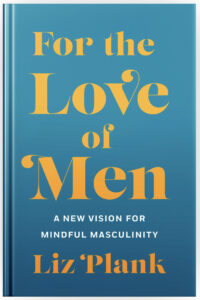Marriage
by Rukhshona Uktamova
What is marriage? Two love birds’ living together? Escaping oppression or walking into oppression? A form of punishment? A form of freedom? Liberation? A form of slavery? The novel/book Women Race & Class written by Angela Y. Davis brought up many good important issues and topics about women’s history. Some topics are legacy of slavery, birth of women’s rights, racism during the women suffrage movement, women’s education and liberation, rape, women’s role in housework and more. Women throught history has faced many unfairness, they had to fight in order to have rights to education and to get job outside of their homes. In the book Women Race & Class written by Angela Y. Davis, it states “Well – situated women began to denounce their unfulfilling domestic lives by defining marriage as a form of slavery” (Davis, 33). I respectfully disagree to some extend with this statement because slavery is just more than working for less to no pay it is when one person is treated as property with no rights. Slaves are not free, women are. In the text it said “They seem to have ignored, however, the fact that their identification of the two institutions also implied that slavery was really no worse than marriage” (Davis, 34). Slavery in my opinion was so much worse than marriage, being taken away from your home getting seperated from your family, forcing to work in difficult conditions for long hours less pay and less food, getting raped by white men, and getting whipped and chained for trying to escape cruel treatment is not same as marriage. Yes, marriage can be challenging, diffucult especially when the wife is a full time employee, full time mother, and also a house worker but at least you are at your own home with your family. You chose to get married, to have kids, to work outside of home, slaves did not chose to be slaves.
During slavery, White women and Black women couldn’t really get a long because White women believed they were superior than Black women when they were really not. They tretaed them poorly, Black women were maids, and nannys. When White women started working outside of home, they faced similar unfairs like Black women faced. Long hours of work but low pay. Because of the similar conditions white women compared their situation to slavery. Then they came together and fought for their rights. In 1833, Philadelphia Female Anti – Slavery Society was created and “…enough white women were manifesting their sympathetic attitudes toward the Black people’s cause to have established the basis for a bond between the two oppressed groups”(Davis, 34). You don’t know what somebody is feeling and going through untill you wear their shoes, so after experiencing similar treatment White women understood what Black women were going through. “….they learned how to challenge male supremacy within the anti – slavery movement” (Davis, 39). By helping others White women’s political involvemnet increased.
So, marriage is still not a form of slavery, it can be a blessing there are people who are out there who wants to have their own family, kids and loving parentners. There are women who are infertile, who can’t have kids and wanting to have kids. Taking care of your kids shouldn’t be a burden and shouldn’t only be the women’s responsibily. Men did take action in bringing the kids to life they shouldn’t say I am babysitting their own child or helping their wife when they are doing the home chorus. Because cooking and cleaning is basic life skills that everybody needs to learn and use. Women are hardworking, patient, strong individuals if they think marriage is a form of slavery because they are moms, wife, cleaning lady, cook, nanny, worker in factory all at the same time, they should look on the bright side. They are going to advance their multi-tasking skills, they can be role models for their kids, they can increase family income, enjoy their salary by spending on what they want they don’t need to ask for money. If they couldn’t handle this God wouldn’t give them all of this. God gave them all of this because he knows women are capable and strong enough to do all of this.



